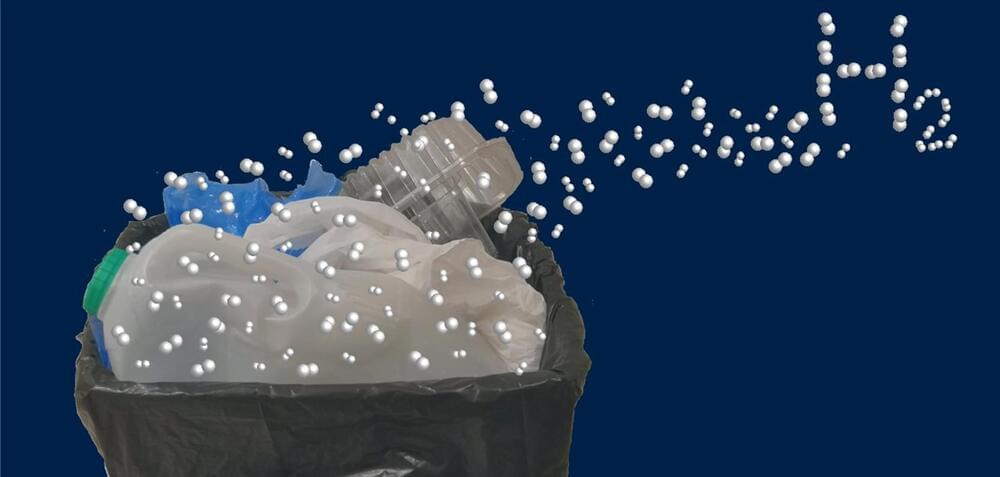The ever-increasing production and use of plastics over the last half century has created a huge environmental problem for the world. Currently, most of the 4.9 billion tonnes of plastics ever produced will end up in landfills or the natural environment, and this number is expected to increase to around 12 billion tonnes by 2050.
In collaboration with colleagues at universities and institutions in the UK, China and the Kingdom of Saudi Arabia, researchers in the Edwards/ Xiao group at Oxford’s Department of Chemistry have developed a method of converting plastic waste into hydrogen gas which can be used as a clean fuel, and high-value solid carbon. This was achieved with a new type of catalysis developed by the group which uses microwaves to activate catalyst particles to effectively ‘strip’ hydrogen from polymers.
The findings, published in Nature Catalysis, detail how the researchers mixed mechanically-pulverised plastic particles with a microwave-susceptor catalyst of iron oxide and aluminium oxide. The mixture was subjected to microwave treatment and yielded a large volume of hydrogen gas and a residue of carbonaceous materials, the bulk of which were identified as carbon nanotubes.
